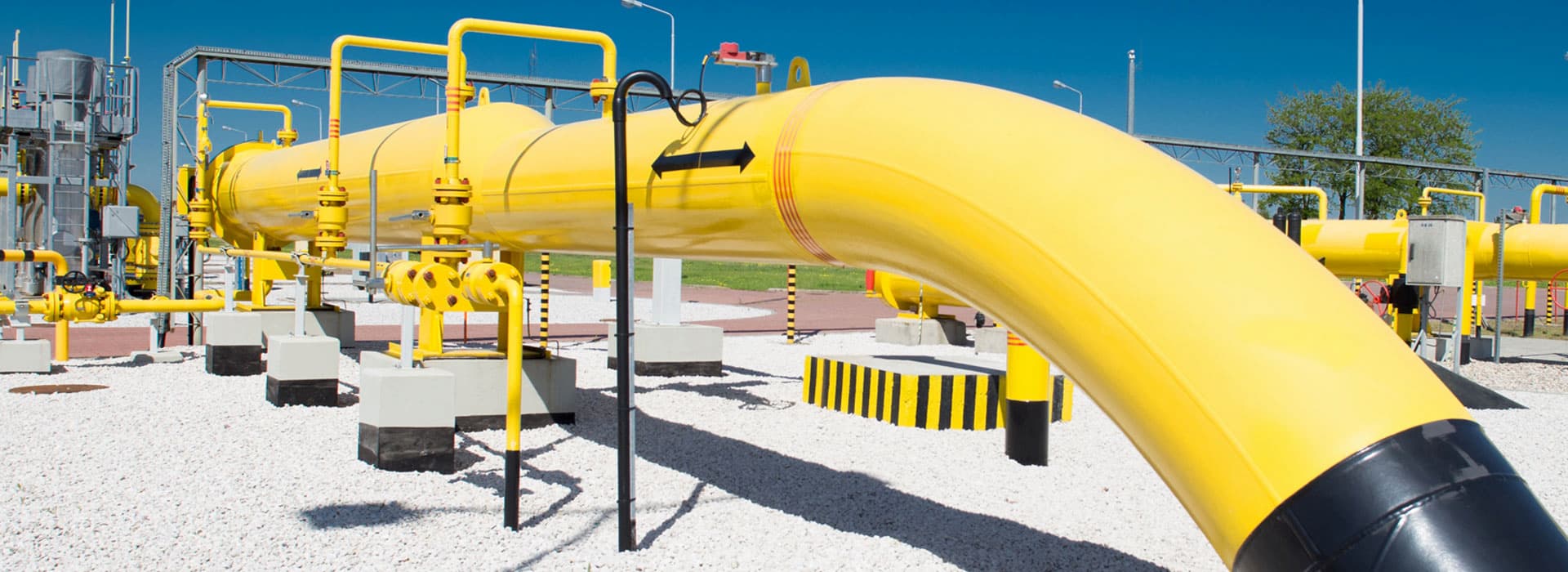Piping engineers are responsible for piping design and the installation of piping systems that transport materials such as oil, gas, water, and waste. The piping setup and layout are critical to the luxuries we may take for granted, such as having running water in the house, receiving gas to warm our homes, or flushing a toilet that connects through pipes to the sewage, and later to a waste treatment plant. In short, smart piping systems are fundamental to living a comfortable life, and expert piping engineers are behind it all.
Piping engineers must make forecasts and analyses, decide on piping layout and placement, choose piping materials, and design piping supports or tresses, while using computer-aided design (CAD) or 3D modeling to create the blueprint and specifications. They also need to ensure that piping systems are adequately reinforced to reduce vibrations, regularly check nozzle loads in compliance with codes, draft technical reports and provide trainings to junior or fellow engineers and technicians as needed. Given the need for making many detailed calculations and high accuracy in planning, piping engineers are highly skilled in math, physics, and chemistry, among others.
Piping engineers and piping design engineers are needed in industries where pipes are used to transport liquid materials from one location to another. Common sectors with promising career opportunities include waste and water management, power generation, marine dredging, and the oil and gas industry.
Apply now for a job as piping engineer!
Projektarbeit bei namhaften Kundenunternehmen (w/m/d)
Location: Düsseldorf
Branche: Information Technology
Expertise: IT & Shared Services
Experience: 1 years
Sie möchten nicht irgendein Projekt - sondern eines, das wirklich etwas bewegt? Bei Brunel arbeiten Sie dort, wo Innovation entsteht: direkt bei unseren Kundenunternehmen, führend im Hochtechnologie-Umfeld. Ob bei der Entwicklung nachhaltiger Mobilitätslösungen, dem Ausbau erneuerbarer Energien, der Digitalisierung medizinischer Geräte oder der Optimierung industrieller Prozesse - Sie gestalten den Fortschritt aktiv mit. Je nach Qualifikation und Interessen übernehmen Sie Verantwortung in Bereichen wie: Forschung & Entwicklung, Konstruktion und Simulation Software- und Systementwicklung (z. B. Embedded, Web, App, Cloud) Automatisierung, Elektrotechnik oder Test und Validierung Qualitätssicherung, Projektmanagement oder technische Dokumentation Was Sie erwartet: Projekte, die Substanz haben. Technologien, die unsere Zukunft prägen. Und ein Umfeld, das Ihre Stärken fördert.
Elektrotechniker (w/m/d)
Branche: Infrastructure
Expertise: Production & Manufacturing
Experience: 2 years
Planung, Entwicklung und Betreuung elektrotechnischer Systeme, Komponenten und Schaltungen Erstellung von Stromlaufplänen, Schalt- und Verdrahtungsunterlagen (z. B. mit EPLAN, WSCAD oder E3.series) Auswahl und Auslegung elektrischer Betriebsmittel nach technischen und normativen Vorgaben Durchführung von Prüfungen, Messungen und Fehleranalysen an elektrischen Systemen Unterstützung bei Inbetriebnahmen, Tests und technischen Abnahmen Enge Zusammenarbeit mit Konstruktion, Produktion, Einkauf und externen Dienstleistern
Softwareentwickler (w/m/d)
Branche: Infrastructure
Expertise: IT & Shared Services
Experience: 2 years
Entwicklung und Implementierung von Steuerungs- und Automatisierungssoftware für Maschinen und Anlagen Erstellung, Pflege und Test von SPS-Programmen (z. B. in TIA Portal, STEP 7, CoDeSys, TwinCAT o. Ä.) Inbetriebnahme, Fehleranalyse und Optimierung von Steuerungssystemen vor Ort oder remote Erstellung von Softwaredokumentationen, Bedienkonzepten und Funktionsbeschreibungen Integration von HMI/SCADA-Systemen sowie Kommunikation mit übergeordneten Systemen Enge Zusammenarbeit mit Elektrokonstruktion, Mechanik und Projektmanagement
Qualitätsingenieur (w/m/d)
Branche: Infrastructure
Expertise: Quality Management
Experience: 2 years
Ihre Hauptaufgabe ist die Entwicklung und Betreuung von Qualitätssicherungsprozessen sowie einzelner Prüfanweisungen und Dokumentationen. Sie betreuen eigenverantwortlich die Entwicklung von der Testphase bis zur Freigabe der Produkte. In Ihrer Position als Qualitätsingenieur gewährleisten Sie zudem die Einhaltung und Umsetzung der gültigen Qualitätsvorgaben und Prüfanweisungen. Darüber hinaus übernehmen Sie das Projektcontrolling, die Terminverfolgung und die Koordination mit der Produktionsleitung und anderen Spezialisten. Ihr Aufgabengebiet wird mit der Dokumentation der Prüfergebnisse abgerundet.
Entwicklungsingenieur (w/m/d)
Branche: Infrastructure
Expertise: Planning & Testing
Experience: 2 years
Entwicklung und Optimierung komplexer Produkte und Systemkomponenten bis zur Serienreife Durchführung von Machbarkeitsanalysen, technischen Bewertungen und Konzeptentwicklungen Sicherstellung der Einhaltung technischer Normen sowie kundenspezifischer Anforderungen Erstellung und Pflege technischer Dokumentationen und Spezifikationen Abstimmung technischer Inhalte mit internen Fachbereichen und externen Partnern Anwendung moderner Entwicklungsmethoden (z. B. FMEA, Systems Engineering, Simulation)
Systemingenieur (w/m/d)
Branche: Infrastructure
Expertise: Planning & Testing
Experience: 2 years
Systementwicklung und -integration über den gesamten Produktlebenszyklus hinweg Erstellung und Pflege von Systemanforderungen, Architekturen und Schnittstellendefinitionen Durchführung von Systemanalysen, Risikobewertungen und technischen Bewertungen (z. B. FMEA, FTA) Koordination technischer Inhalte zwischen Entwicklung, Qualität, Produktion und externen Partnern Unterstützung bei Verifikations-, Validierungs- und Testaktivitäten auf Systemebene Anwendung modellbasierter Entwicklungsmethoden und strukturierter Vorgehensmodelle (z. B. V-Modell, MBSE, SysML)
Projektingenieur (m/w/d)
Location: Deutschland
Branche: Infrastructure
Expertise: Production & Manufacturing
Experience: 2 years
Planung, Koordination und Überwachung technischer Projekte über alle Phasen hinweg Erstellung und Pflege von Projektplänen, Terminplänen und Ressourcenübersichten (z. B. mit MS Project, Primavera o. Ä.) Technische Schnittstellenkoordination zwischen Entwicklung, Einkauf, Produktion und Qualität Verfolgung von Projektfortschritt, Kosten und Risiken sowie Durchführung von Abweichungsanalysen Unterstützung bei der Erstellung technischer Spezifikationen, Dokumentationen und Statusberichte Enge Abstimmung mit internen Stakeholdern und externen Partnern zur Sicherstellung termingerechter Umsetzung
Operativer Einkauf (w/m/d)
Branche: Infrastructure
Expertise: Purchase
Experience: 2 years
Selbständige Abwicklung der Bestellprozesse (im SAP) und Dokumentation der Einkaufstransaktionen Erfassen von Lieferantenstammdaten Nachverfolgung offener SAP-Transaktionen oder Lieferantenanlagen Einholung von technisch-/kommerziellen Angeboten und deren Auswertungen (z. B. Preisvergleiche) Durchführung der Terminverfolgung inkl. Mahnwesen (z. B. Angebotsbindefristen, Lieferungen, Auftragsbestätigungen, Zertifikate)
Vermessungsingenieur (w/m/d)
Location: Wuppertal
Branche: Infrastructure
Expertise: Planning & Testing
Experience: 2 years
Werkstudent IT Support (w/m/d)
Location: Wuppertal
Branche: Machine & Plant Design
Expertise: IT & Shared Services
Experience: 1 years
Unterstützung bei der Entwicklung und Implementierung von IT-Lösungen Mitarbeit in Projekten zur Systemintegration und Netzwerktechnik Unterstützung im IT-Support bei der Fehleranalyse und -behebung Mitwirkung bei Softwarelösungen und Updateproblemen Durchführung von System- und Funktionstests im Rahmen von IT-Projekten
Common piping engineer responsibilities
- Analyzing piping needs, designs and determining best piping layouts;
Preparing and designing piping system drawings, such as blueprints, maps, and diagrams, using the latest design software such as AutoCAD, CadWorx, CloudWorx, and AutoPLANT; - Suggesting improvements to piping design specifications and implementing piping plans accordingly;
- Collaborating with piping designers, other engineers, and technical staff to initiate piping system ideas and provide piping engineering support during installation;
- Providing support for purchasing and vendor submittals;
- Performing assessments of piping quality;
- Maintaining, undertaking repairs, and upgrading piping systems when needed;
- Coordinating with teams to implement assignments and check status reports;
- Achieving results in line with agreed project timelines and budgets;
- Delivering outputs in compliance with relevant requirements, codes, and certifications, and in line with customer needs and demands;
- Participating in technical trainings as needed;
- Assuring the safety and security of team members.
Qualifications for piping engineer
Piping engineers should have at least a Bachelor’s degree in Engineering, Mechanical or Chemical Engineering, Technical Design or related. In some countries, an engineering license may also be required.
Additional supporting skills and experience include:
- At least 2 years’ experience;
- In-depth knowledge of piping systems engineering;
- Solid understanding of piping materials, procedures and drafting and installation techniques;
- Some project management experience;
- Availability to work in demanding environments;
- Strong observation, problem-solving and analytical abilities;
- Excellent written and verbal communication skills;
- Well-organized and capable of prioritizing tasks well.


